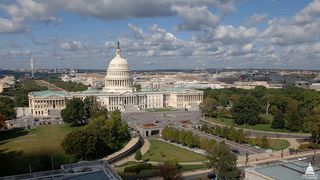Editorial: Hotseat.com

It is getting hotter in Washington these days, at least if you are a web giant such as Amazon, Facebook and Google.
Amazon is under fire from President Donald Trump; Google is under fire from privacy activists seeking billions in civil penalties; and Facebook is under fire from well, it seems, everybody, with CEO Mark Zuckerberg set to testify this week before the House Energy & Commerce Committee.
Internet service providers are encouraging legislators and regulators to keep those web giants in mind as they contemplate legislative online protections against blocking and throttling and, yes, even paid prioritization.
On that front, Comcast is at least talking about some kind of compromise on paid prioritization that prevents it with a carve-out for specialized services that don’t run over the public internet.
That may well be a light at the end of the tunnel, though it will be hard for activist groups to give up that issue.
Against the backdrop of increased scrutiny, particularly driven by Facebook user info winding up in the hands of Cambridge Analytica for political purposes, privacy advocates took aim at Facebook and edge providers last week, but pulled their punches in a way that reinforced ISP’s argument that they are being unfairly targeted in the net-neutrality debate.
Many of the same groups that scoff at ISPs’ pledges to protected privacy and network neutrality — pledges that could be enforced by the Federal Trade Commission — last week hammered edge providers, yet suggested as a fix the same sort of voluntary pledges they typically reject from ISPs.
Edge providers are far larger than any ISPs and are the primary hunter-gatherers of online personal information. If the government reimposes net neutrality rules, applying them to the largest companies with the most direct impact on how we interact online has to part of the conversation — and the legislative solution.
Broadcasting & Cable Newsletter
The smarter way to stay on top of broadcasting and cable industry. Sign up below
